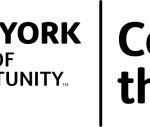Conversations | Paola Mendoza, Artistic Director for the Women’s March, Film Director, and Author
“I believe the role of the artist in this moment is resistance.”
Paola Mendoza believes that artists have the power to open the heart of America. Her immigrant experience directly informs the stories she tells as a filmmaker, bringing light to the unsung heroes of the country.
NYFA: You were born in Bogotá, Colombia and came to the United States when you were three years old. In what way did growing up as an immigrant shape your current work?
Paola Mendoza: The reality of being an immigrant and a woman of color definitely affected me and made me one hundred percent who I am as an artist. My body of work has always been focused on immigrants and poverty, specifically poverty around single mothers and children. I’ve also done a lot with regards to incarceration. My own personal revolution (even before the election of Donald Trump) was to always write and tell stories starring and centering on women of color.
I made that a very conscious choice because I saw the world that was being presented to me as a consumer of art was a very limited world. Thus I first started as a filmmaker telling the stories of the women that I grew up with, the women that formed the foundation of this country. I’m talking about the workers, the women that take care of other people’s babies, the women that work at fast food restaurants as my mom did growing up, the janitors, and those who are, in my eyes, the unsung heroes of America. My stories try to acknowledge them as full human beings, shining a light on them in dignified ways because, so often, our stories lack the true dignity that so many of our mothers and fathers have. That has been a personal choice. Obviously, post-Donald Trump, my vision and my work have shifted not in intention but definitely in how I am creating the work.
NYFA: What role does collaboration play in what you do and what makes such collaborations successful?
PM: Collaboration is a beautiful thing. I love collaborating as an artist. I’ve always gravitated towards collaborating. I think the most important thing in collaboration, to make them successful on various levels, is to be egoless. At the end of the day, when we are working on a project together with other people, the project needs to be at the front and center of what is inspiring our decisions. It’s hard sometimes to be able to tell the difference between ego and what’s best for the project. I am a strong believer that the process definitely informs the final product, so I try, for my process, to be as healthy, as kind, as compassionate, as generous as possible. I want to work in the world that I want to imagine for others. There’s no point or need to be fighting for a world that’s based on equity, compassion, and authenticity if the process by which I’m getting to that work does not reflect that. I believe in collaboration and I also believe in just bringing as much energy into the process as we do into the product.
NYFA: From your experience within the Women’s March, what role do you think artists should play?
PM: Mr. Harry Belafonte, one of our honorary co-chairs at the Women’s March, said: “When the movement is strong, the music is strong.” The idea is that everything is interconnected. I believe the role of the artist in this moment is resistance. Though the term was coined after Trump was elected, we have been resisting against various forces for decades and centuries. I think it’s very important to know the resistance did not start on November 9. So, the role of artists in the movement of resistance, for me, is a critical one. What we artists can do is to ask questions. Our work doesn’t necessarily answer those questions but continues to dig deeper into various queries, until we get to what we believe.
For me, since Donald Trump’s election, my question has been: what is the heart of America, what is at the center of this country? What makes the heart open and what makes the heart close? Because what I think right now in this country is that we are suffering from a mass contraction of the heart. What that means is that we are closing off our heart, our compassion, our curiosity, and our interest in those we might find are the other.
For me, the role of the artist is to open up the heart of America. If we are able to open the heart of America, via art, artistry, and artist, we will be saving this country from itself. How do we open the heart of America? We open it by telling stories that are not being told in dignified, kind, and compassionate ways. We pick up the cameras, and we show the humanity and dignity of the communities that have been demonized. We seek the truth. Truth is an active resistance in these moments. We also allow ourselves to be joyful. Joy is also an active resistance. What we start doing as artists is to shift the narrative of this country, a cultural shift. It’s something that can take years, or it could be very quick. We saw the power of artists with the Women’s March because it was really the power of artists that made it become commercial and cultural for the ten weeks leading up to it. It was people that were creating visual art content, putting out memes, writing twitter threads, and going online posting videos.
We are at the height of that fight right now and the role of the artist is to be a leader in this movement of resistance by creating art. Art needs to illuminate our path during these very dark times. Artists must create art that not just reflects the time we are in; art should be a hammer with which to create the world that we want.
NYFA: What advice do you have for immigrant artists looking for opportunities in New York?
PM: Being an immigrant in this country is very difficult. Being an immigrant in this country at this time is even more difficult because immigrants are not being welcomed, embraced, nor valued. I think most artists become artists because they want to do the impossible; that’s what inspires us. The idea that we could have a life and make a living by telling stories, by creating paintings, or by imagining an idea and making it come to fruition is of itself a leap of faith, of hard work. For immigrant artists, your passion and love just need to be fortified and become stronger. It’s critical to find community. We can’t be silent as immigrants. It’s hard to be brave. It’s scary to be courageous. But the people most admired in history, and the artists that we admire the most, are the ones that are the bravest. They are the ones that find courage when no one else does. My advice to immigrant artists is to seek the truth and make art that’s based on this truth; art that opens the heart of America. When they do that, they will be saving the country from itself, and then they will also be saving themselves in this country.
Learn more about Paola Mendoza.
This interview is part of the ConEdison Immigrant Artist Program Newsletter #100. Subscribe to this free monthly e-mail for artist’s features, opportunities, and events.
The Immigrant Artist Mentoring Program is expanding to San Antonio, TX, Detroit, MI, and Oakland, CA. Apply now!
– Interview conducted by Alicia Ehni, Programs Officer, NYFA Learning.
Image: Courtesy of Paola Mendoza






